Can you detox your plastic life and smash the MCS Plastic Challenge?
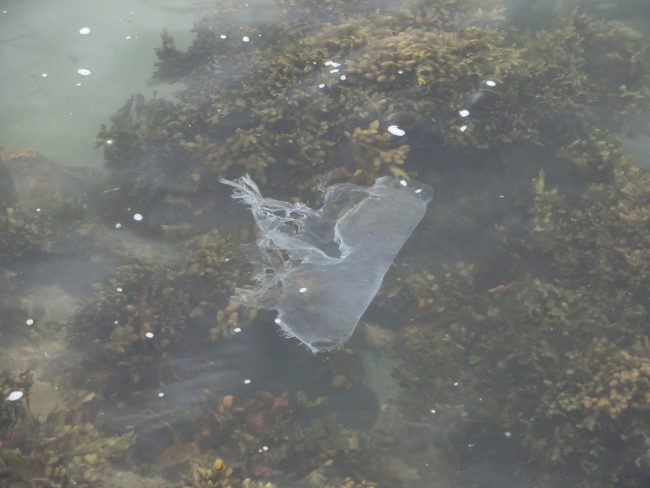
The Marine Conservation Society is challenging people to get through July single-use plastic free. Could you rise to the challenge? Clare Fischer explains how to take part.
The Marine Conservation Society’s (MCS) annual challenge to the public to avoid single-use plastic during the whole of July is right around the corner and the charity hopes that even more than the 9,000 people who got involved in 2018 will take up the Plastic Challenge in 2019.
Now in its sixth year, 9,000 people took up the challenge in 2018. The popularity of the Plastic Challenge is growing, but because Britain is still wedded to single-use plastic it won’t be an easy month for those taking part. Of the more than 8 million tonnes of it that get dumped in our oceans every year, half of it comes from disposable plastics that are only used once before being thrown away.
MCS runs hundreds of beach cleans annually and during last year’s Great British Beach Clean, 70% of the litter found on almost 500 UK beaches cleaned by MCS volunteers was made of plastic or polystyrene, posing a huge threat to wildlife and humans. Plastic bags, bottles and tiny plastic pieces are regularly found in the stomachs of turtles and other sea creatures and in some cases have caused their death from starvation or choking.
Erin O’Neill, MCS Digital Editor, is coordinating the Plastic Challenge for the charity: “We know that it’s pretty much impossible to live completely plastic-free, but there are ways to reduce your plastic footprint and we hope that by throwing down this challenge it will focus minds on trying to ditch as much of the single-use stuff as possible.
“So, it’s time to think about all types of single-use plastic, much of which we don’t even recognise anymore as it’s become just everyday ‘stuff’. There’s food packaged in plastic, plastic water bottles, plastic milk bottles, shower gels, toothpaste to name but a very few to get you started!”
MCS says that people taking on the Plastic Challenge are often shocked to discover just how much single-use plastic they have been using every day: “We say, please have a go – and even if you can only manage a single day, you’ll never look at your shopping in the same way again!” added Erin O’Neill.
MCS says that over the last six years of the challenge, it’s clear that for many, this month is the start of a lifestyle change. Among the hardest things people have found to replace are milk containers, dried goods packaged in single use plastic like pasta, rice and pulses, loo paper and toothpaste.
Erin O’Neill says there’s plenty of help on hand: “Our website offers all sorts of tips and advice and during the month of July. You can follow our social media feeds to get tips from other Challengers, share your wins, however small, or just see what lengths people are going to when trying to cut down. However long you last – an hour, a day, a week or the whole month – we’d love to know you’re out there, giving it a go.”
Three MCS Ocean Ambassadors will also be taking on the Challenge.
I’m really concerned about the excessive packaging that you find in supermarkets and I’ll be going all out to face the Plastic Challenge head on. I know I won’t be able to eradicate all single-use plastic out of my life but I’ll be giving it a damn good try. I’d urge everyone to give it a go. We must act now.
Deborah Meaden, entrepreneur and dragon on BBC2’s Dragons Den
For giving us so much, we should do all we can to ensure our seas continue to flourish. I’m taking on the Plastic Challenge to show that it is possible to make an impact on our single-use plastic lives. I travel a lot so I know it’s going to be hard but I’ll be tweeting about my experiences and I hope it’ll help others on the same journey.
Ben Garrod – Professor of Evolutionary Biology, author and TV presenter
Water has played a huge part in my life but it breaks my heart to see how we are abusing our seas and oceans. As a mum to a teenager, I know the Plastic Challenge will be tough, because like so many people, I often opt for convenience and that generally comes in single-use plastic. But I’m determined to give it my best shot.
Sharron Davies MBE – World, European, Commonwealth and Olympic swimmer and sports broadcaster
There will be three Plastic Challenge launch events on June 29th in London, Crickhowell in south Wales and Edinburgh. MCS staff will be signing people up the Challenge, offering tips on how to get started with a helpful booklet and handing out spinach seeds to grow at home.
Away from the events, getting involved is simple. Register at www.mcsuk.org/plastic-
Main image credit: Plastic bag jellyfish off the Cornish coast by Seagrawiese via Wikimedia Commons
The Marine Conservation Society is a UK charity dedicated to protecting our seas, shores and wildlife, campaigning for clean seas and beaches, sustainable fisheries, and protection of marine life. It also produces the Good Beach Guide and Good Fish Guide, as well as involving thousands of volunteers in projects and surveys such as MCS Beachwatch.
The views expressed in our blog are those of the author and not necessarily lowimpact.org's
3 Comments
-
1Annie Leymarie June 21st, 2019
The number one cause of plastic pollution in the oceans is abandonned fishing equipment, in particular fishing nets. Sea life gets entangled in them and the nets slowly desintigrate into trillions of smaller pieces. So the number one individual action we can take to reduce pollution is to stop eating fish – which will of course help with the number one threat to sea life: overfishing. The Marine Conservation Society tells us that “As a result of using our Good Fish Guide ratings 5.7 million seafood meals every week are now more sustainable” – but imagine how more sustainable the situation would be if we avoided 5.7 million seafood meals every week (presumably just in the UK), together with all the discarded catch (https://inews.co.uk/news/uk/thousands-of-tonnes-of-fish-still-thrown-away-at-sea-as-britain-fails-to-enforce-ban-to-conserve-stocks-report/). That would be probably better for our health too, now that all fish flesh is itself highly polluted! Everything else mentioned here is still very important, of course (and in particular let’s spread widely the information that tap water in the UK is fine!) but we must be aware of industry-biased messages that don’t give the full picture.
-
2Dave Darby June 21st, 2019
Annie – first, let’s completely agree about tap water. Water in plastic bottles drives me insane.
I guess it’s swings and roundabouts when it comes to fish though, isn’t it? If we replaced those 5.7 million seafood meals every week with 5.7 million plant-based meals every week, then we’d need to turn a lot of natural habitat into farmland to be able to do that.
I know you disagree with eating fish philosophically / spiritually, and I can’t argue about that – only about impact on ecology.
Personally, if I had the power, I’d send all the industrial trawlers to the scrap-yard, which would massively reduce the amount of fish eaten.
There’s no way for humans to produce food that doesn’t damage ecology in some way (apart from hunting and gathering using stone-age technology – which is only possible for a tiny percentage of the world’s population), so if I had to give rough sustainability scores, I’d say:
Industrial trawlers – 0/10
Industrial agriculture (esp. meat) – 0/10
Soy-based vegan meals grown on the other side of the planet – 0/10
Organic smallholdings – 7/10 (they still have to remove natural habitat)
Small fishing boats – 7/10 (they still use fuel, but don’t need to remove habitat – and as long as they minimise waste and use everything they catch)
Grow veg in your garden – 8/10 (you’ve got the garden anyway, and this really reduces food miles)
Hunting / gathering using (reasonably) primitive tech – including fishing rods – 9/10
I’m sure you have a different scoring system! ?
-
3Jan Wilmot June 25th, 2019
Ok I’m looking for ideas of how to reduce single use plastics.
I grow a lot of my veg but everything from the shops appears to be wrapped in plastic, I shoot a lot of my own meat but invariably wrap it in plastic to freeze it.
The only way I can see is to shop at a market but that is hard as they only operate one day a week and would mean travel to he nearest town when I normally have shopping delivered due to living in the country




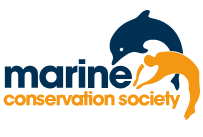
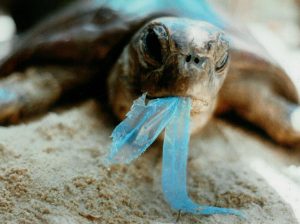 New report: number of plastic bags on UK beaches falls by almost half – so charging 5p for plastic bags works?
New report: number of plastic bags on UK beaches falls by almost half – so charging 5p for plastic bags works?
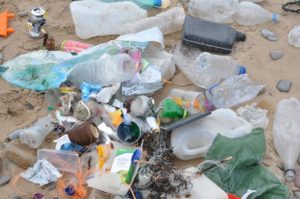 Record numbers clean up in the Marine Conservation Society’s 25th Great British Beach Clean
Record numbers clean up in the Marine Conservation Society’s 25th Great British Beach Clean
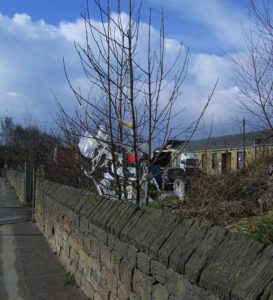 My plastic-free life: an interview with Kate Armstrong
My plastic-free life: an interview with Kate Armstrong
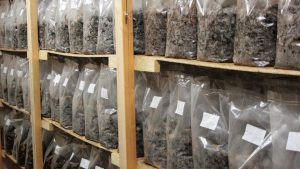 Alternatives to single-use plastic in mushroom growing
Alternatives to single-use plastic in mushroom growing
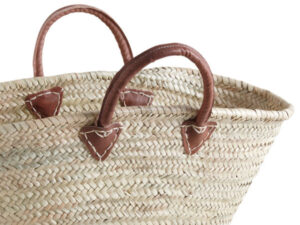 Low-impact shopping
Low-impact shopping
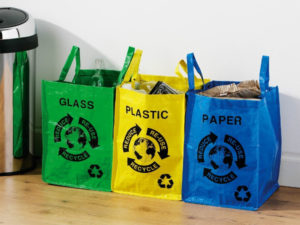 Recycling, reusing & repairing
Recycling, reusing & repairing


